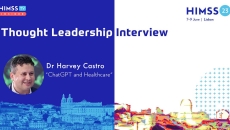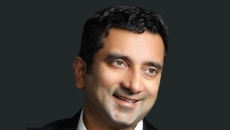artificial intelligence
The algorithm helps predict missed appointments, failure to schedule follow-up visits and late arrivals.
Dr Harvey Castro, author of "ChatGPT and Healthcare," discusses his book on the use of large language models in medicine, the role of physicians in refining future LLMs and worries about physician and patient hallucinations due to LLM results.
Dr. Terri Shieh-Newton, intellectual property attorney, immunologist and member of the law firm Mintz, tells MobiHealthNews about ownership rights concerning AI.
Dr. Brian Anderson, MITRE’s chief digital health physician and Coalition for Health AI cofounder, says AI requires regulation. He discusses the blueprint CHI developed for bias-mitigation, transparency, governance and monitoring in AI.
Niall O'Connor, chief technology officer at Cohere Health, discusses how AI and machine learning can help streamline the prior authorization process by analyzing the totality of patient information and reducing denials by health plans.
Navin Natoewal of Philips and Jeffrey Schneider at the DoD discuss RATE technology, which utilizes biometric data from wearables and an algorithm to predict COVID-19 and other infections in service members 48 hours before symptoms began.
The company offers AI-powered virtual agents that perform revenue cycle-related administrative tasks.
Dr. Jay Bhatt, managing director at Deloitte, warns that without high-quality algorithms technology has the potential to increase health inequities and drive mistrust.
HIMSS23
Lee Kim, senior principal of cybersecurity and privacy at HIMSS, offers insights on the need for continuing cybersecurity training for health IT teams, staffing shortages and the potential of generative AI tools.
HIMSS23
The Chartis Group's director Gregg Mohrmann and principal Bret Anderson discuss recommendations to help healthcare organizations prepare an AI strategy with clinical and nonclinical use cases.








